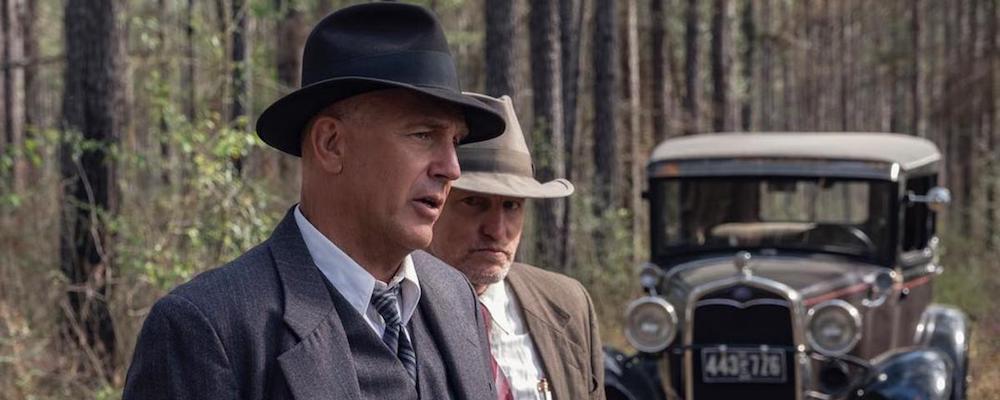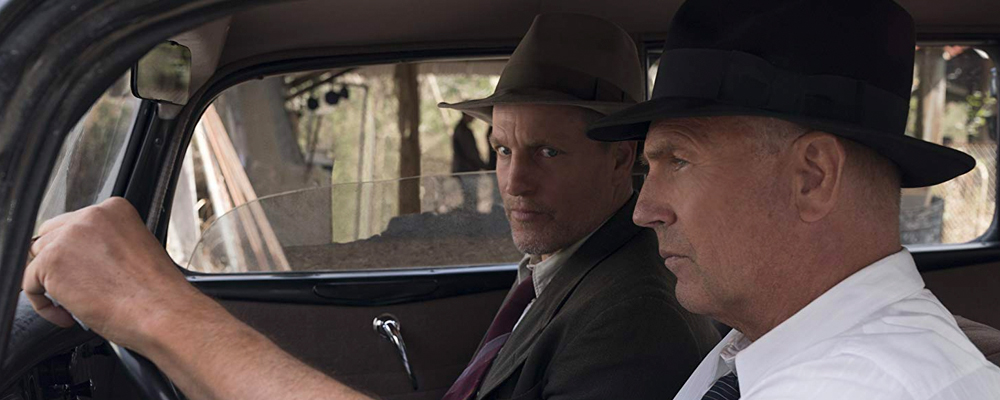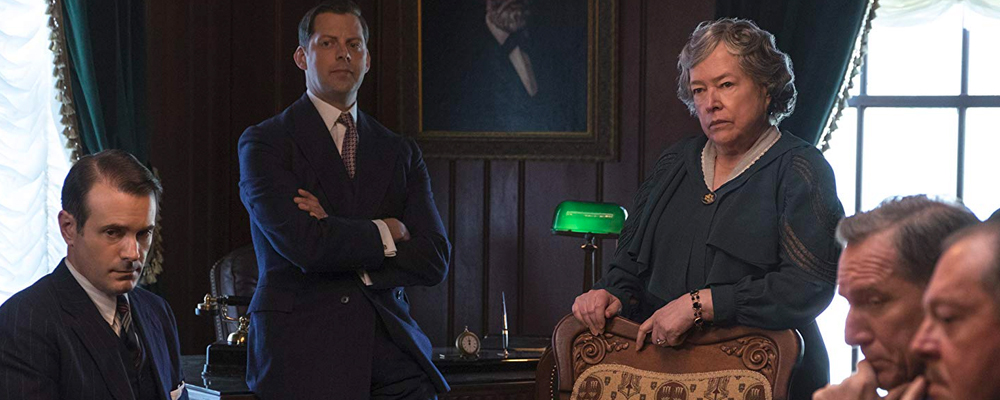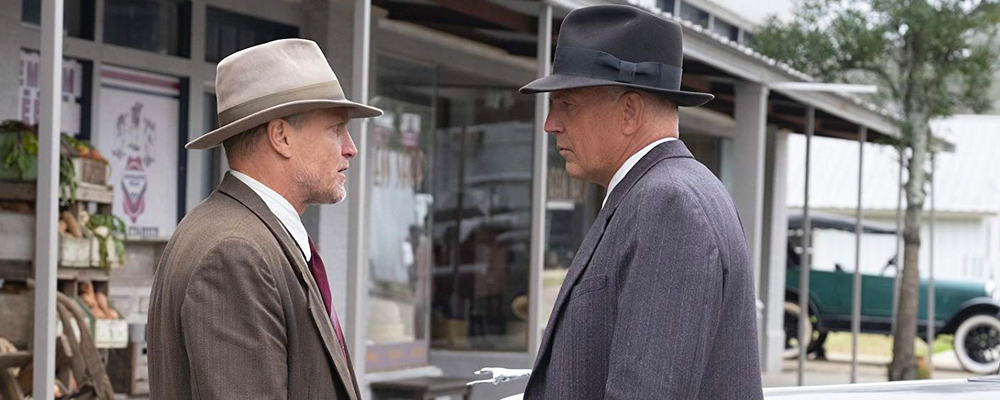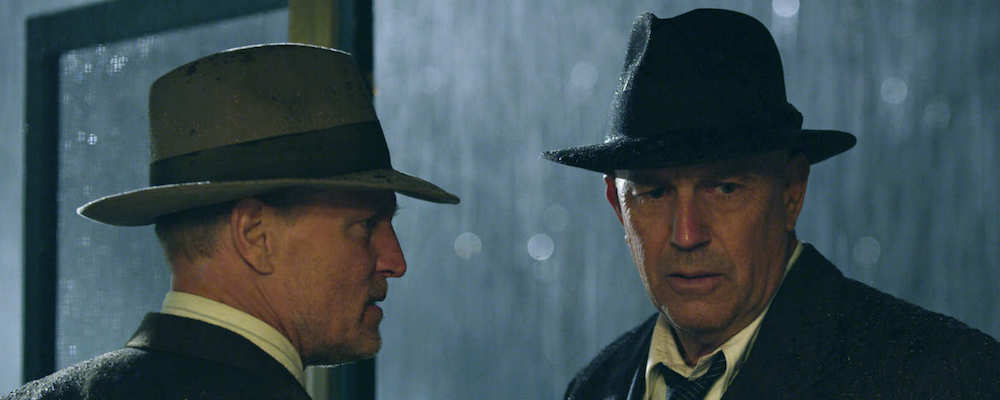Kevin Costner and Woody Harrelson Hunt Down Bonnie and Clyde in Netflix’s Gritty ‘The Highwaymen’
Alci Rengifo
“The Highwaymen” wants to be an old-fashioned film commenting on a very modern-day phenomenon. It recounts the hunt for infamous Depression-era outlaws Bonnie Parker and Clyde Barrow. What it also becomes is a historical critique of celebrity culture, or at the very least the worship of outlaw figures. A slick Netflix production, it’s most enjoyable when it lets the two stars, Kevin Costner and Woody Harrelson, sniff around for clues and recount the old days as fierce Texas Rangers. The objects of their obsession, Bonnie and Clyde, are reduced to mere ghosts.
It’s 1934 and the Great Depression is on. Across the central United States, bandits roam about. Most famous is the violently glamorous couple Bonnie and Clyde (Emily Brobst and Edward Bossert). They rob banks and mow down cops. Texas governor Ma Ferguson (Kathy Bates) is frustrated with the situation. One of her inner circle, Lee Simmons (John Carroll Lynch) recommends the governor bring in former Texas Ranger Frank Hamer (Costner) to bring down the outlaws. Ferguson is reluctant, especially since the notoriously free-shooting Texas Rangers were disbanded under her watch. But she relents and Simmons offers Hamer the assignment. Hamer soon reunites with his old partner, Maney Gault (Harrelson), who is still haunted by some of their bloodier escapades from younger days. Well-stocked with guns and ammo, the two go on the road to track down Bonnie and Clyde’s whereabouts. But the two are not what they used to be and the rustiness of getting older and being out of the game for a while can take a toll. Yet they are relentless and will stop at nothing, even as younger, doubting cops and FBI agents prove as annoying as the crooks.
Much of “The Highwaymen” feels like a corrective to the pop culture image of the whole Bonnie and Clyde mythos. Its most tragically romantic version is of course the 1967 movie “Bonnie & Clyde” by Arthur Penn, starring Warren Beatty and Faye Dunaway. Not only did it introduce French New Wave aesthetics to American mainstream cinema, it also immortalized how we see the bank-robbing lovers and their bloody, apocalyptic ending as they were blasted away in their Ford. In “The Highwaymen” the couple is simply a presence over the story. We get shots of Bonnie’s heels as she approaches an unfortunate cop about to meet his maker. In one shot we can even hear Bonnie giggle after a killing. The effect is engaging as they personify the idea of how we idealize personas without even getting to know them. Yet the real focus is on Hammer and Gault, who are a throwback to that genre beloved by filmmakers like Clint Eastwood, where weary old fighters return to battle. The director is John Lee Hancock, whose track record is interesting when it comes to historical subjects. He made the ultra-heroic 2004 “The Alamo,” and in 2016 a darkly comedic take on the birth of McDonald’s, “The Founder.”
With “The Highwaymen” Hancock basks in wide open spaces and highways, set in a pre-World War II America. Some of the best moments are when he simply allows the camera to linger on Hamer as he’s thinking, or on Gault as he plays cards and tells other lawmen about a bloody confrontation with Mexican bandits. These scenes have the classic feel of an old western, a genre which these two actors are well-acquainted with. Hancock also has fun with commenting on the changing world the two men inhabit. Gault can’t fathom the idea of wiretaps or the new, deadlier automatic weapons Bonnie and Clyde have a taste for. It is a pre-television world where radio is the main source for breaking news. When the movie sticks to being a straight police procedural it’s always engaging. A good, simple crime story relies on fascinating details. The two hunters stalk the bandits’ childhood homes, watching as secret messages are passed along through bottles.
As the film continues, it builds to the inevitable takedown of Bonnie and Clyde. The screenplay is by John Fusco, who wrote the boy band version of Billy the Kid in the 1990s, “Young Guns,” and he knows how to make the material feel contemporary. There is this overly macho tone of some of the material. Hamer’s dialogue during the movie is remorseless, for him the outlaw lovers are garbage that needs to be taken out. And while Gault and Hamer are haunted about their past bloodiness, Gault in particular showing remorse, they still ambush the outlaws and shoot them up to the point of overkill (Hancock even does a close up of a sandwich next to Bonnie’s hand before the bullets fly). But of course these were rough times, which tend to produce rough characters.
“The Highwaymen” is a rather engaging work, entertaining and informative, with two leads who make these roles their own. The period is brought to life beautifully, and Costner and Harrelson make great tough guys, getting into bathroom brawls and prairie car chases. It works because the two bring the characters to life convincingly as weary souls on the road, on the scent of larger-than-life lawbreakers. They take us on a chase worth following for the crime and punishment.
“The Highwaymen” releases March 15 in select theaters and March 29 on Netflix.

